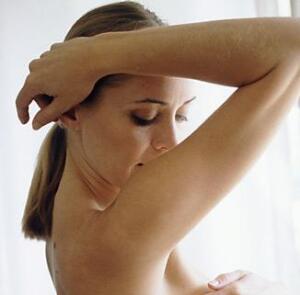One-third of women in their 70s have dense breasts: study
by
Brendon Nafziger, DOTmed News Associate Editor | February 29, 2012

Almost half of all women have breasts that appear dense (or white) on a mammogram, with previous research suggesting breasts get fattier, and thus less dense, as women age. But a new study says, while that's largely true, a non-negligible number of older women also have dense breasts, including almost one-third of women in their 70s. And these women might benefit from additional scanning modalities more sensitive for women with dense breasts, such as ultrasound or MRI.
Women with dense breasts are thought to have a four to sixfold higher risk of breast cancer, according to the study, published this month in the American Journal of Roentgenology. Breast density is also thought to make mammograms less effective, because the connective tissue that causes the density appears white, just like cancer, on a mammogram, so it could get missed during screening.
The study, carried out at the breast imaging department of the NYU Langone Medical Center in Manhattan, analyzed all 7,000 or so screening mammograms taken at the center in 2008. The researchers, led by Dr. Cristina M. Checka, an assistant professor of surgery at NYU, found what was expected: a significant link between age and density. As women got older and after they passed menopause, their breasts were less likely to be dense.
For women in their 40s, 74 percent had dense breasts. This drops to 57 percent for women in their 50s, and 44 percent for women in their 60s. However, density didn't completely go away. About 36 percent of women in their 70s had dense breasts, the study said.
"[A]ge is not an accurate surrogate for breast density," the authors wrote. "We documented a meaningful population of outliers at both extremes of age, which has implications for screening practices."
What are those implications? One possibility is to give women with dense breasts additional scans, either with ultrasound or MRI, believed to be better able to pick out cancers in women with dense breasts.
For instance, one study cited by the authors found MRI had an 81 percent sensitivity for women with dense breasts, compared with mammography, which had a 66 percent sensitivity. However, MRI has drawbacks of its own, including cost, use of contrast agents and the risk of false positives, the authors said, which has "limited the integration of MRI into the routine screening of high-risk women."
|
|
|
You Must Be Logged In To Post A Comment
|

Ex Zaballero
what about MBI as an alternative modality?
March 01, 2012 09:55
Ultrasound and MR are mentioned as alternative modalities for imaging dense breast - what about MBI as an alternative modality?
to rate and post a comment